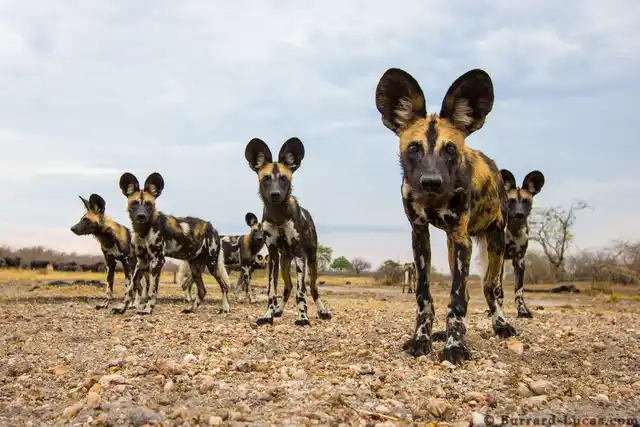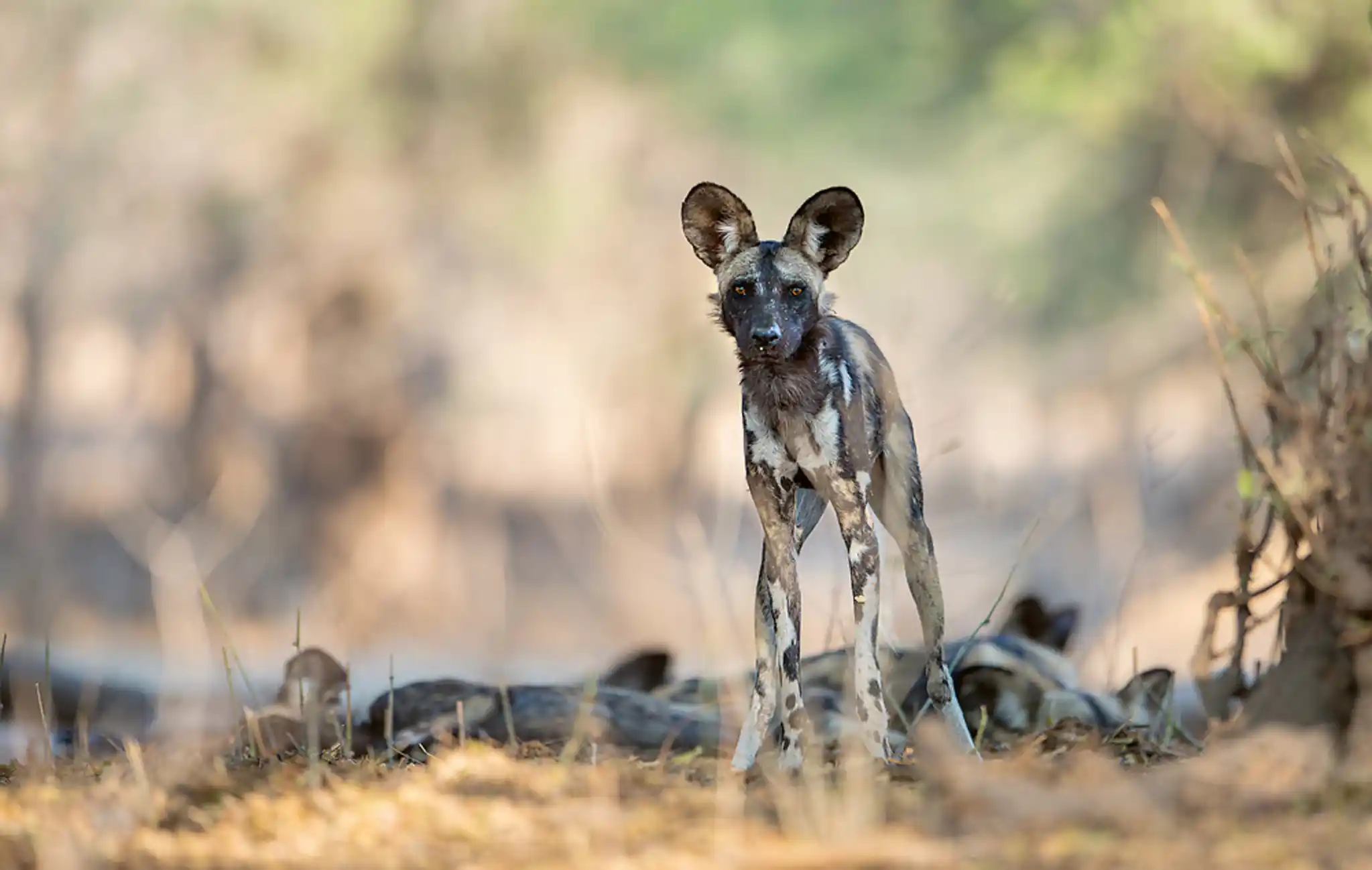The year begins with active packs hunting daily to feed their growing young. The wet season brings lush, green backdrops and fewer visitors — ideal for photographers. In Botswana and Zambia, sightings are common as wild dogs take advantage of abundant prey and cooler mornings.
Packs remain active, often covering long distances as they roam their territories. Cooler temperatures and open landscapes make this an excellent month for sightings in southern Africa, especially around the Okavango Delta and Mana Pools.
Prey numbers remain high, and wild dogs continue to hunt frequently. Tracks are easier to follow in damp soil, and the combination of vibrant vegetation and dramatic skies makes for superb wildlife photography.
As the rains ease, packs begin scouting for den sites. Visibility improves as grass levels drop, and guides can often anticipate pack movements. This transitional month offers a balance of lush scenery and increasing predictability.
Denning season approaches, and packs start to settle in specific areas. The dry season begins, and sightings become more consistent, particularly in Botswana’s Linyanti and Zimbabwe’s Hwange National Park.
The denning season begins in earnest. Adults return frequently to feed pups, meaning guides can locate dens and observe family interactions at a respectful distance. One of the best months for close, prolonged viewing opportunities.
A highlight of the wild dog calendar. Pups emerge from their dens and begin exploring, playing energetically while adults hunt nearby. Dry, clear conditions make this one of the best months for both viewing and photography.
Young pups are increasingly confident, and the pack hunts together as a cohesive unit. The bush is dry and open, providing superb visibility. This is peak season for wild dog encounters across Botswana, Zimbabwe, and Zambia.
Temperatures rise, and water sources shrink, concentrating both predators and prey. Wild dogs are active throughout the day, covering great distances and offering thrilling sightings during morning and afternoon drives.
The height of the dry season brings high activity and dramatic sightings as packs chase prey across dusty plains. The heat can be intense, but the open terrain and shorter grass make for unparalleled photographic conditions.
The first rains arrive, cooling the air and transforming the bush into a vivid green. Wild dogs become more nomadic again, following migratory prey. While more unpredictable, this month offers beautiful light and a renewed sense of wilderness.
Pups born earlier in the year are now strong and mobile, joining the adults on hunts. The wet season returns, bringing rich colours, dramatic skies, and fewer tourists — ideal for travellers seeking solitude and atmosphere alongside active wildlife.











